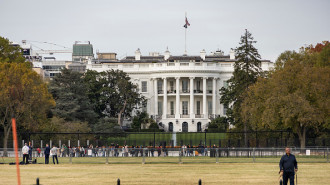Yemen on the brink of famine, warns UN
The sheer scale of the crisis that has hit the Middle East's poorest nation makes it one of the worst hunger crises in the world.
Experts place the blame for the disaster solely on the country's two-year conflict.
"The conflict has a devastating impact on agricultural livelihoods. Crop and livestock production fell significantly compared to pre-crisis levels," said Salah Hajj Hassan, a representative for the UN Food and Agriculture Organization (FAO) in Yemen.
"It is absolutely essential that the humanitarian response encompass food and agriculture assistance to save not only lives but also livelihoods."
Around 2.2 million of the country's children are at risk of acute malnutrition and 462,000 are severely and acutely malnourished (SAM), according to the UN International Children’s Emergency Fund (UNICEF).
"To put things in perspective, a SAM child is ten times more at risk of death if not treated on time than a healthy child his or her age," said UNICEF representative Meritxell Relaño.
"We are seeing the highest levels of acute malnutrition in Yemen’s recent history".
Aid agencies have also faced difficulty in reaching those in need due to the ongoing aerial campaign by the Saudi-led Arab coalition in support of Yemen's UN-recognised government.
Grant Pritchard, Interim Country Director for Save the Children in Yemen.
"On the ground, warring parties are detaining aid workers and hampering humanitarian access. This crisis is not an act of nature – it is man-made. Food and aid are being used as weapons of war," he added.
Since March 2015, Yemen has been ravaged by a civil war that is being fought between Houthi rebels and the Saudi-backed government of Abedrabbo Mansour Hadi.





 Follow the Middle East's top stories in English at The New Arab on Google News
Follow the Middle East's top stories in English at The New Arab on Google News


